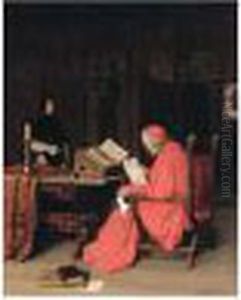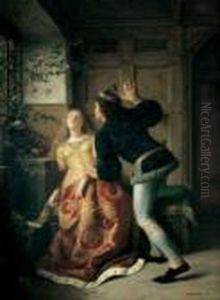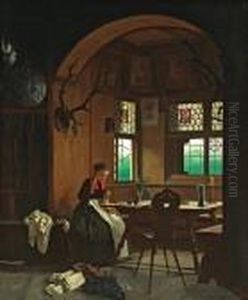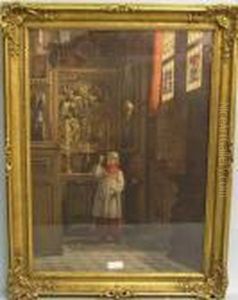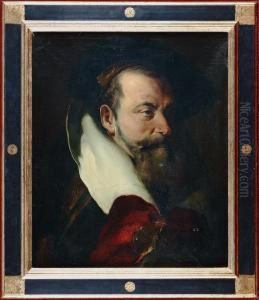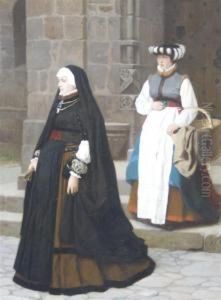Franz Eduard Meyerheim Paintings
Franz Eduard Meyerheim was a German painter born in Danzig (now Gdańsk, Poland) in 1838. He hailed from a family deeply rooted in the arts; his father, Friedrich Eduard Meyerheim, and his brothers, Wilhelm and Hermann Meyerheim, were also accomplished painters, making art a family tradition. This environment undoubtedly nurtured his talents from a young age, setting the stage for his eventual contributions to the art world. Meyerheim's work is often characterized by meticulous attention to detail and a profound appreciation for the natural world, qualities that distinguish his landscapes and genre scenes.
Throughout his career, Meyerheim was influenced by the Romantic movement, yet his work also hinted at the emerging Realist tendencies of his time. This blend of romanticism with a realist approach allowed him to create works that were both idealized and grounded in the everyday life of his subjects. Meyerheim's paintings often depicted scenes from rural life, showcasing his ability to capture the simplicity and beauty of the countryside and its inhabitants. His landscapes, in particular, are noted for their vibrant color palette and the delicate interplay of light and shadow, demonstrating his keen observation skills and his ability to translate the subtleties of nature onto canvas.
Despite his talent and the quality of his work, Franz Eduard Meyerheim's name is not as widely recognized today as some of his contemporaries. He spent the bulk of his career in Germany, where he contributed significantly to the local art scene. Meyerheim's dedication to his craft was evident in the detailed execution and emotional depth of his paintings. Sadly, his life was cut short when he died in 1880 at the age of 42. His passing marked the loss of a promising artist whose works continue to be appreciated by art historians and collectors for their contribution to the transitional period between Romanticism and Realism in 19th-century German art.
